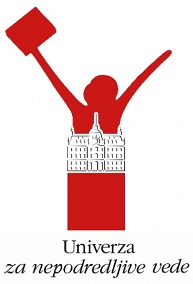Participants in the 15 October Movement (15O) in Ljubljana opened the conflict a day early, intervening in the largest bank in Slovenia, Nova Ljubljanska Banka (NLB). This intervention took the form of a teach-in, where participants listed their grievances and struggles as a result of the financialization of their lives. This action established Ljubljana as a strong node within the movement.
But what exactly is 15O? This is a network movement with a global dimension based on the principles of direct democracy, horizontal organization and common struggle. The movement, which finds some of its traces in the Arab Spring of 2011, emerged out of the growing network of struggles across Europe, North Africa and the Americas.
In Ljubljana, success has been down to the strong opening, with the aforementioned teach-in and a large demonstration of five thousand people on the 15 of October. The demonstration marched from the central square of Ljubljana to the Stock Exchange (Borza), where a collective decision was made to occupy and open the space. Since then the occupation has grown, establishing infrastructure for media, workshops and food, hosting daily assemblies and coordinating actions. With an emphasis on democracy of direct action, individuals and groups take responsibility for their own proposed workshops and actions and report them back to the occupation during the assemblies.
The articulations developed in the workshops and public interventions suggest three main discourses: austerity resistance, commonfare and new avenues of power via direct democracy. These discourses come from the conditions created by financial capital, and its parasitic extraction of rents from all aspects of social reproduction. The result of this system is the increasing precarity of the whole society on the one side and massive growth in wealth of the financial sector despite the so-called financial crisis. It is clear that we cannot cut our way out of the crisis by destroying the remainder of the welfare state with austerity programs, so instead we must struggle to re-appropriate the rents taken from us and return it to the common.
David Brown



Discussion
Reply to this article